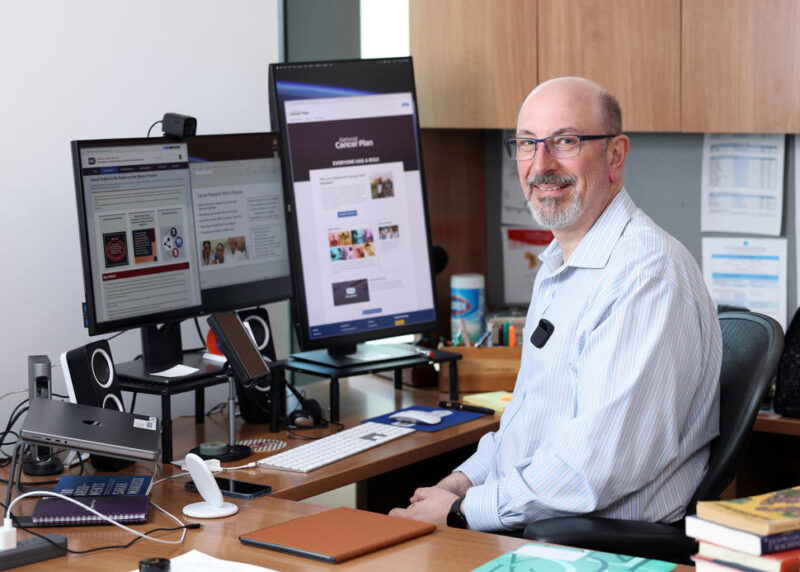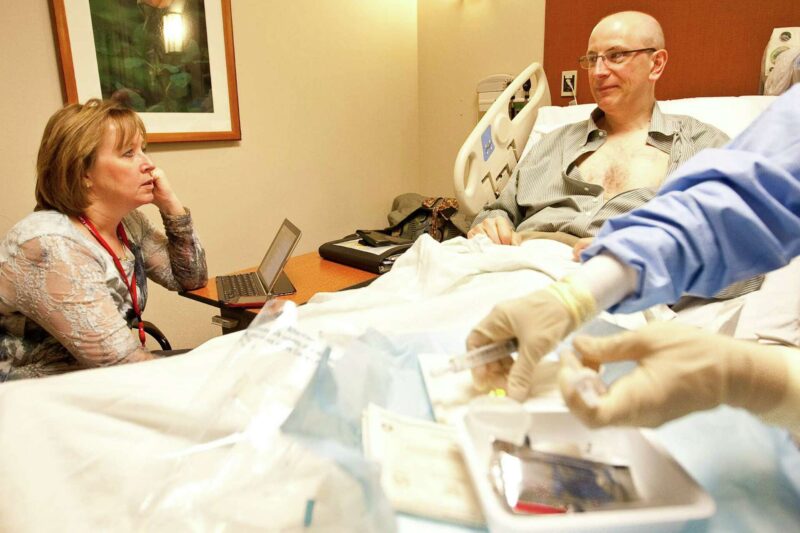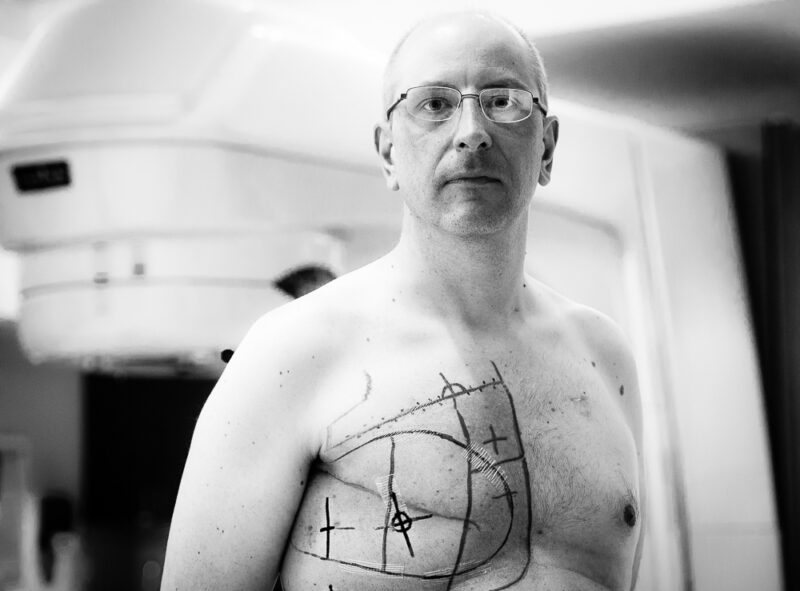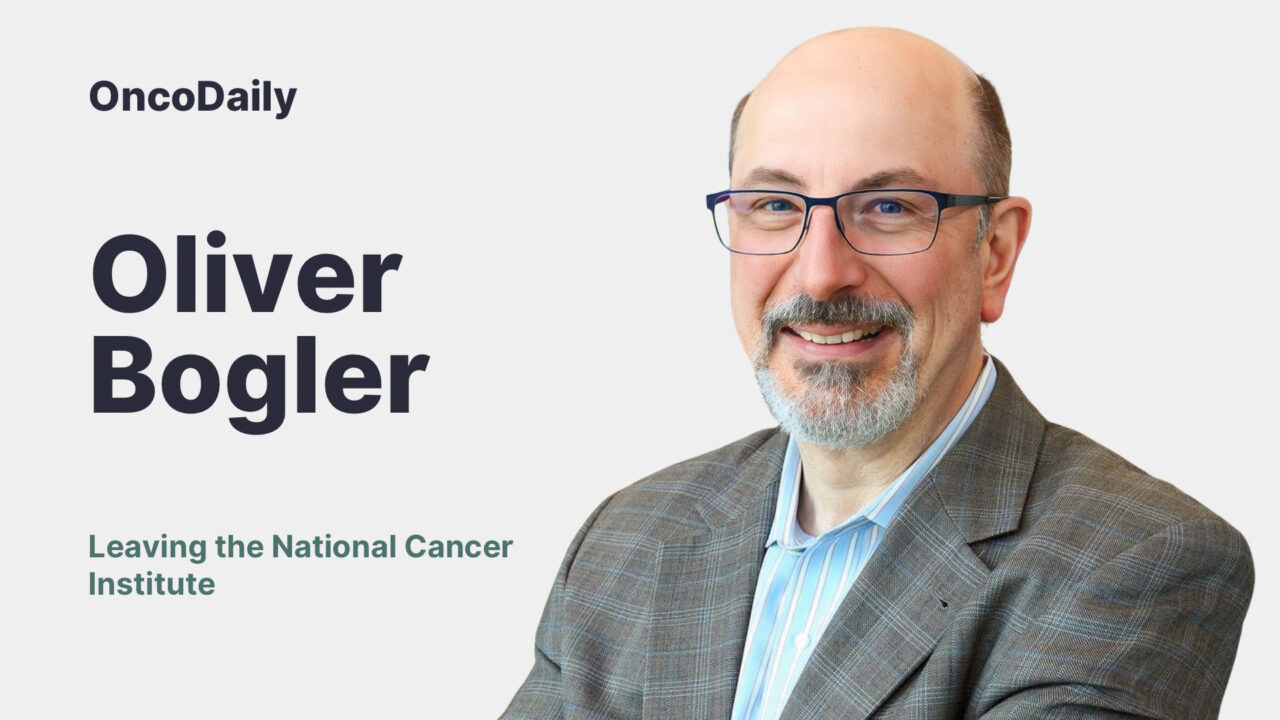Dr. Oliver Bogler is a distinguished cancer biologist and academic leader with a career spanning molecular oncology, global cancer education, and research workforce development. He most recently served as Director of the Center for Cancer Training at the National Cancer Institute (NCI), where he led national efforts to develop and support the next generation of cancer researchers. A former professor at MD Anderson Cancer Center and former Chief Operating Officer at the ECHO Institute, Dr. Bogler is also known for his advocacy in male breast cancer and for integrating patient-centered perspectives into science and policy.
Early Life and Education
Dr. Oliver Bogler received his undergraduate degree in Natural Sciences from the University of Cambridge, followed by doctoral training at the Ludwig Institute for Cancer Research in London. He then completed postdoctoral fellowships at both the Ludwig Institute in San Diego and the Salk Institute, focusing on cancer biology. These formative years laid the foundation for his later contributions to translational cancer research and academic leadership.
Career
Dr. Bogler held faculty positions at Virginia Commonwealth University and Henry Ford Hospital, before joining MD Anderson Cancer Center. There, he served as Professor of Neurosurgery and Director of Basic Research in the Brain Tumor Center. His research centered on glioblastoma, particularly EGFR signaling pathways and resistance mechanisms to chemotherapy.
In 2010, he became Vice President for Global Academic Programs at MD Anderson, overseeing strategic collaborations with over 30 institutions in more than 20 countries. In 2011, he was appointed Senior Vice President for Academic Affairs, managing institutional accreditation, faculty development, and education initiatives across MD Anderson.
In 2018, Dr. Oliver Bogler took on the role of Chief Operating Officer at the ECHO Institute at the University of New Mexico, advancing global health equity through telementoring.
In January 2020, he joined the National Cancer Institute (NCI) as Director of the Center for Cancer Training (CCT). In this role, he led the institute’s training programs, focusing on building and diversifying the next generation of cancer researchers across intramural and extramural environments. He hosted the NCI podcast Inside Cancer Careers and championed workforce initiatives for early-career investigators.

Research Contributions
Dr. Oliver Bogler’s scientific work has focused on the molecular mechanisms of glioblastoma multiforme (GBM). His research explored:
- EGFRvIII signaling and STAT5 activation in GBM.
- Platinum-based chemotherapeutics and their cellular mechanisms.
- Epigenetic regulation in cancer stem cells, including the role of RNA demethylases like ALKBH5.
His transition from bench science to senior leadership reflects a broader commitment to integrating scientific advancement with education, mentorship, and global collaboration.
Honors and Advocacy
Dr. Bogler is a male breast cancer survivor and has become a prominent advocate for male breast cancer awareness. He contributes to patient-centered research, including registries and advocacy groups, and brings the dual perspective of scientist and patient to his public engagement.
He has served on boards and committees of leading organizations, including the American Association for Cancer Research (AACR) and Cancer Biology Training Consortium (CABTRAC).
Leaving the National Cancer Institute
On June 27, 2025, Dr. Oliver Bogler publicly announced via LinkedIn that he was stepping down from his role at NCI. In his own words:
“Today is my last day at the NCI, and I am leaving with feelings of gratitude and sadness. I am deeply thankful for the privilege of having been a part of the NCI/NIH and cancer research training community for the past 5 years, and the chance I have had to contribute to NCI’s singular mission. It was a highpoint of my career to work with so many great people in support of the early career cancer researchers – thank you to all my colleagues, at the NCI, NIH and beyond.
National Cancer Institute (NCI) truly works with the cancer research community across the US and beyond and this partnership is essential – I have found likeminded allies at Cancer Biology Training Consortium (CABTRAC), American Association for Cancer Research, the Cancer Centers and among the PIs of the Cancer Training Branch portfolio and the NCI’s boards – and many more – and will miss our collaboration.
When I joined NCI in 2020 I was convinced that I would serve for a decade and retire from this role. I joined to make a difference and was pleasantly surprised by the agency and creative freedom I have enjoyed, until very recently. I can no longer have the impact that I seek and so have made the hard decision to leave.
My commitment to the biomedical community and especially to investigators in the early stages of their careers remains undimmed. I am excited about my next steps – more on that soon. For now – thank you.”
He described his five-year tenure as a career highlight and emphasized his continuing dedication to supporting early-career biomedical researchers. While specific details about his next role remain forthcoming, he noted that he remains committed to advancing biomedical education and training.
A Shared Diagnosis: When Cancer Becomes Personal
In a striking and rare medical coincidence, Dr. Oliver Bogler and his wife, Dr. Irene Newsham, both cancer researchers at the University of Texas MD Anderson Cancer Center—were diagnosed with the same type and stage of breast cancer, five years apart.
Dr. Newsham, a respected cancer biologist and geneticist, was diagnosed first. Then, in September 2012, Dr. Bogler received the unexpected news: he, too, had hormone receptor-positive invasive ductal carcinoma, Stage II—the same diagnosis his wife had faced at age 46.
Statistically, breast cancer affects approximately 200,000 women in the U.S. each year, but only about 2,000 men. The odds of a married couple both being diagnosed with the disease at the same age, stage, and subtype are extraordinarily rare. To the best of MD Anderson’s knowledge, it was the first such case at the institution.

“No one’s told us the odds of a husband and wife both getting breast cancer, but obviously it’s pretty unusual”
said Dr. Oliver Bogler, who at the time served as Professor of Neurosurgery and Senior Vice President of Academic Affairs at MD Anderson.
The couple, who are parents to two children, described the emotional challenges of navigating treatment while maintaining their responsibilities as parents and professionals. Dr. Newsham recalled her disbelief upon learning of her husband’s diagnosis:
“It took time to come to grips with the idea we were in the same situation as five years ago.”
For Dr. Bogler, his wife’s experience was a source of comfort. “Oddly comforting,” he said, “knowing that she’s been through this and I don’t have to explain anything.” Still, the shared journey came with emotional weight. “That he has to go through it, too,” said Dr. Newsham. “That doesn’t seem fair.”
Their story has drawn national attention not only for its statistical rarity, but for the light it sheds on male breast cancer—a condition often overlooked in public discourse. Dr. Bogler has since become an advocate for increasing awareness of breast cancer in men and for patient-focused cancer research. He has spoken openly about the need to improve education, reduce stigma, and support inclusive clinical trials for all patients affected by the disease.
Their shared diagnosis serves as a powerful reminder: cancer is unselective, and even those who study it every day are not immune. Yet through it all, the Bogler–Newsham family has chosen to face cancer with transparency, resilience, and a commitment to improving care for others.

Legacy and Future Directions
Dr. Bogler leaves behind a legacy of shaping cancer research training frameworks and advocating for equity and innovation in biomedical education. His work has influenced institutional partnerships, NIH training policies, and interdisciplinary approaches to cancer science.
As the cancer research community awaits news of his next move, his voice remains influential in guiding the future of cancer workforce development.
Videos and Media
Written by Nare Hovhannisyan, MD


